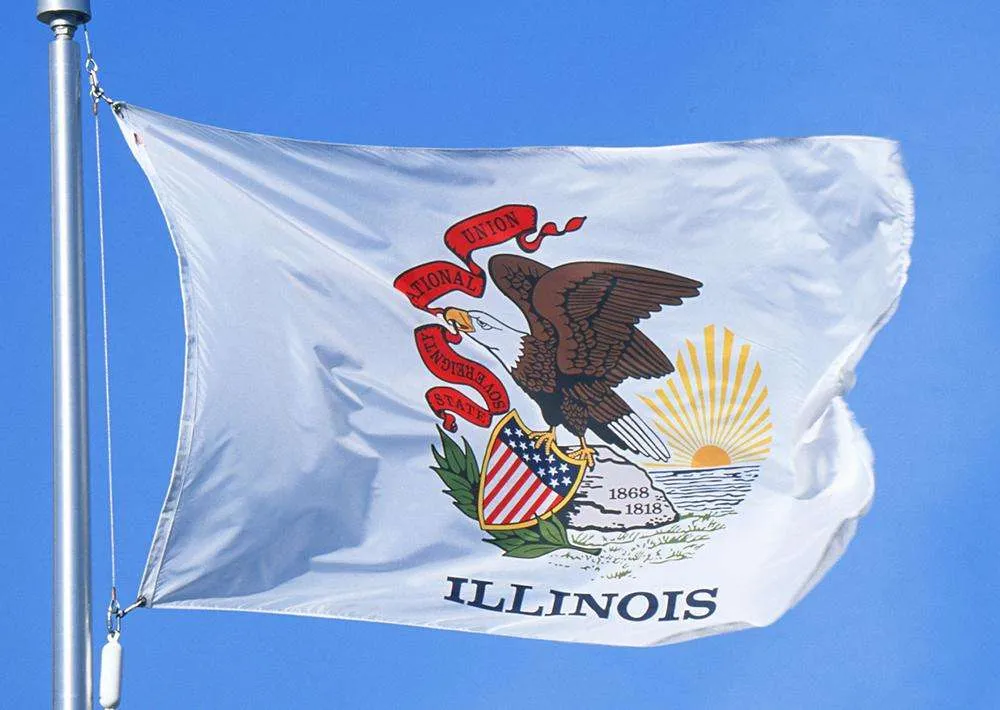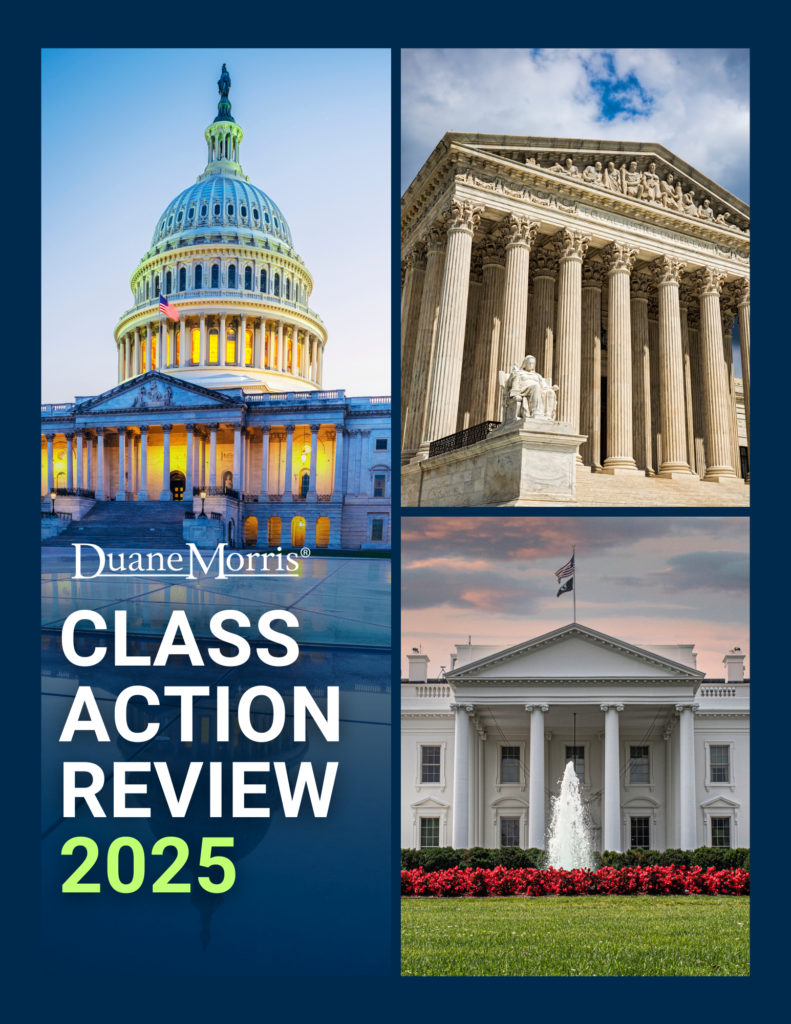By Gerald L. Maatman, Jr., Jennifer A. Riley, Ryan T. Garippo, and George J. Schaller
Duane Morris Takeaways: On October 15, 2025, in Eli Lilly & Co., et. al. v. Richards, et al., No. 25-476 (U.S. Oct. 17, 2025), Eli Lilly & Co. filed a Petition For Writ Of Certiorari after a decision by the U.S. Court of Appeals for the Seventh Circuit which created a four-way circuit split as to the proper interpretation of 29 U.S.C. § 216(b). This petition drew briefing from several amici curiae, including the U.S. Chamber of Commerce and the CHRO Association.
Similarly, when the U.S. Court of Appeals for the Ninth Circuit decision widened that circuit split to include five different methodical approaches in Cracker Barrel Old Country Store, Inc. v. Andrew Harrington, et al., No. 25-559 (U.S. Nov. 5, 2025), Cracker Barrel also filed a Petition For A Writ of Certiorari.
Significant for readers of this blog, both petitioners and amici also cited the Duane Morris Class Action Review as the authoritative source on FLSA certification statistics and the widening circuit split regarding when it is appropriate to send notice to would-be plaintiffs, under 29 U.S.C. § 216(b) in a Fair Labor Standards Act (“FLSA”) collective action.
In its review of our practice group’s resource, Employment Practices Liability Consultant Magazine (“EPLiC”) said, “The Duane Morris Class Action Review is ‘the Bible’ on class action litigation and an essential desk reference for business executives, corporate counsel, and human resources professionals.” EPLiC continued, “The review is a must-have resource for in-depth analysis of class actions in general and workplace litigation in particular.
With the submission of our analysis to the U.S. Supreme Court, we are humbled and proud to be cited as the authoritative source in the class action space.
The Briefing In Richards And Harrington
Both Cracker Barrel and Eli Lilly correctly argued in their petitions that “the circuits are split five ways in how to interpret” Section 216(b) and the case law in this area “is in total disarray.” Both petitions ask the U.S. Supreme Court to help organize this “disarray.” As such, a brief guide through these disjointed methodological approaches is included below.
First, there is the familiar and lenient two-step standard in Lusardi v. Xerox Corp., 118 F.R.D. 351 (D.N.J. 1987), which was expressly adopted by the U.S. Court of Appeals for the Second Circuit, Scott v. Chipotle Mexican Grill, Inc., 954 F.3d 502, 515 (2d Cir. 2020), and “acquiesced to . . . without express adoption” by the First, Third, Tenth, and Eleventh Circuits. Kwoka v. Enterprise Rent-A-Car Company of Boston, LLC, 141 F.4th 10, 22 (1st. Cir. 2025); Zavala v. Wal Mart Stores Inc., 691 F.3d 527, 534 (3d Cir. 2012); Thiessen v. Gen. Elec. Cap. Corp., 267 F.3d 1095, 1105 (10th Cir. 2001); Hipp v. Liberty Nat’l Life Ins. Co., 252 F.3d 1208, 1219 (11th Cir. 2001)
Under the Lusardi approach, at step one, a plaintiff moves for conditional certification, relying solely on his or her allegations, and not competing evidence submitted by the employer. If the employee’s motion is granted, would-be plaintiffs receive notice of the lawsuit and then have the ability to opt-in as party plaintiffs to the case and participate in discovery. At the close of discovery, the employer can then move to decertify the conditionally certified collective action, and prove the employees are not similarly situated with the benefit of discovery and evidence.
Second, in Campbell v. City of Los Angeles, 903 F.3d 1090, 1114 (9th Cir. 2018),the Ninth Circuit adopted a variation of the Lusardi two-step approach but also required the plaintiff to show he or she is similarly situated to his or her fellow employees in “some material aspect of their litigation” and not just similar in some sort of irrelevant way, but the plaintiff may rely on mere allegations to make that showing.
Third, the Fifth Circuit in Swales v. KLLM Transp. Servs., LLC, 985 F.3d 430, 443 (5th Cir. 2021), rejected Lusardi’s two-step approach outright, and required its district courts to “rigorously enforce” the FLSA’s similarity requirement at the outset of the litigation in a one-step approach. “[T]he district court needs to consider all of the available evidence” at the time the motion is filed and decide whether the plaintiff has “met [his or her] burden of establishing similarity.” Id. at 442-43.
Fourth, the Sixth Circuit in Clark v. A&L Homecare & Training Ctr., LLC, 68 F.4th 1003 (6th Cir. 2023), adopted a comparable standard to Swales requiring the employee to show a “strong likelihood” that others are similarly situated to him or her before the district court can send notice, but leaving open the possibility of the employer filing a motion for decertification down the line. Clark, 68 F.4th at 1011.
Fifth, the Seventh Circuit in Richards, et al. v. Eli Lilly & Co, et al., 149 F.4th 901 (7th Cir. 2025), rejected the Lusardi framework but declined to go as far as Clark or Swales. Instead, the Seventh Circuit approach requires “a plaintiff must first make a threshold showing that there is a material factual dispute as to whether the proposed collective is similarly situated” to secure notice and an employer “must be permitted to submit rebuttal evidence” for the court to consider. Richards, 149 F.4th at 913. But, there is not a bright line rule as to whether the court should decide the similarly situated question in a one or two step approach as the analysis is not an “all-or-nothing determination.” Id. at 913-914.
Sixth, as correctly noted by counsel for Cracker Barrel, the U.S. Courts of Appeal for the D.C., Fourth, and Eighth Circuits have not yet opined on the proper interpretive method, leaving their district courts free to choose among the available options.
Duane Morris Class Action Review Citations
It should go without saying that these issues are complicated, and employers are looking to experienced practitioners to help them navigate this procedural morass. For that reason, both petitioners and the amici curiae turned to the Duane Morris Class Action Review, and its authors, as the authoritative source in support of their petitions.
The first citation is found in Eli Lilly’s petition for writ of certiorari, which cites Avalon Zoppo, Circuit Split Widens on Judicial Approach to Sending FLSA Collective Action Notices, Nat. L. J. (Aug. 11, 2025), regarding the proper interpretation of Richards, following the Seventh Circuit’s decision in that case. In that article, Gerald L. Maatman, Jr., Chair of the Duane Morris Class Action Defense Group, stated “[t]he [Seventh Circuit’s] holding is going to reverberate and have a huge impact on wage and hour litigation throughout the United States.”
The second citation can be found in Cracker Barrel’s petition, following the Ninth Circuit’s holding in Harrington, which cites directly to the Duane Morris Class Action Review for varying conditional certification rates under this patchwork quilt of legal standards. Indeed, in the 2024 and 2025 editions of the Duane Morris Class Action Review, our analysis showed that: (1) the federal circuit courts that follow or acquiesce to Lusardi grant conditional certification at rates of 84%; (2) the Ninth Circuit grants conditional certification at rates of approximately 71% under the lenient-plus approach; and (3) the remaining Fifth, Sixth, and Seventh Circuits, with varied stricter standards, granted certification at rates approximating 67%. The petition further noted our finding that only approximately 10% of conditionally certified FLSA collective actions reach the decertification stage.
The third citation is found in the U.S. Chamber of Commerce and the CHRO Association’s amicus brief which relies on the Duane Morris Class Action Review for the proposition that “motions for conditional certification . . . are granted in a large majority of [FLSA] cases.” Looking at the statistics, the amici highlight “[i]n 2024, district courts granted 80% of motions seeking court-ordered notice” with “Plaintiffs enjoy[ing] similar success in past years”
These U.S. Supreme Court practitioners and defense counsel are not alone as others refer to the Duane Morris Class Action Review as “the Bible” on class action litigation. It is also relied on by some of the world’s largest plaintiffs’ firms and federal judges, see, e.g., Laverenz v. Pioneer Metal Finishing, LLC, 746 F. Supp. 3d 602, 614 (E.D. Wis. 2024). The Duane Morris Class Action Review is the “one stop shop” and authoritative source on collective action certification rates, collective action trends and analysis, and the implications, pressures, and contours that parties face when engaged in FLSA collective action litigation.
Implications For Employers
Although the petitioners are still briefing their petitions, it is clear that the myriad approaches adopted by the federal circuit courts are ripe for some clarity from the U.S. Supreme Court, which would hopefully provide a roadmap for district courts to assess collective actions uniformly.
Further, the framework for when and how to send notice under Section 216(b) are not the only issues presented by these petitions. Eli Lilly expressly invited the U.S. Supreme Court to overturn Hoffman-La Roche, Inc. v. Sperling, 493 U.S. 165 (1989) and plaintiff-appellee in Harrington would also have the high court decide whether Bristol-Myers Squibb Co. v. Sup. Ct. of Cal., 582 U.S. 255 (2017) applies to collective actions, which we blogged about here.
Because these questions, and many others, remain in flux and unanswered, employers should monitor this blog for updates as it is a trusted source for companies, defense counsel, plaintiffs’ firms, federal judges, and U.S. Supreme Court practitioners alike. We will be following these petitions as they unfold.










